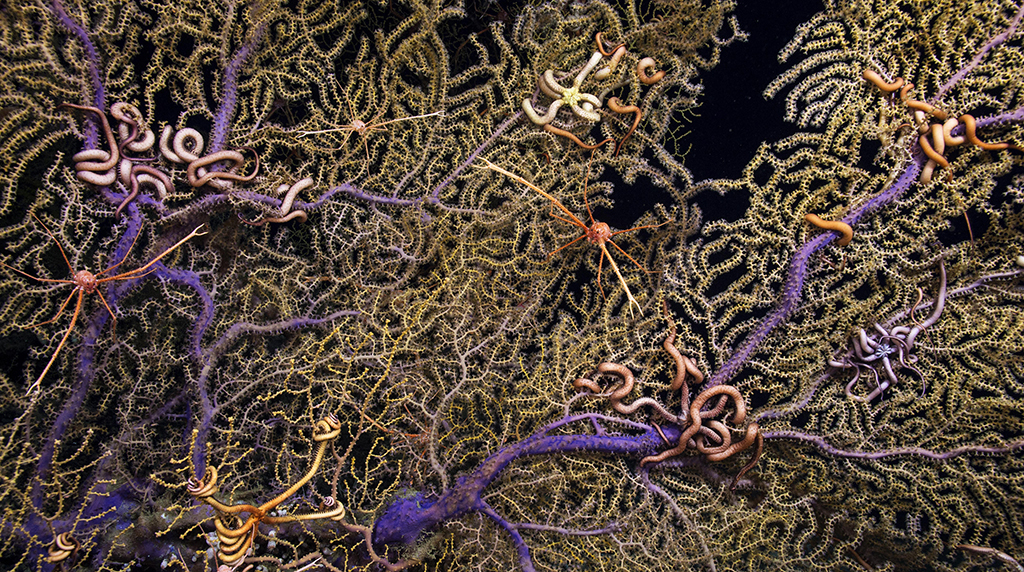May 10, 2016
Deepwater corals form complex biological habitats in the deep-sea and are generally associated with a diverse number of organisms. However, little is known about the effect of symbionts on coral resilience to natural or anthropogenic impacts in their environment. This latest ECOGIG study focused on the influence of the ophiuroid (brittle star) symbiont Asteroschema clavigerum on the resilience of its octocoral host Paramuricea biscaya after the Deepwater Horizon oil spill in the Gulf of Mexico in 2010.
Corals were photographed between 2011 and 2014 at 4 sites, three of which were impacted by the spill in 2010. Each colony was digitized to measure the visible impact on corals. For the majority of colonies measured, the total visible impact was lower within the area influenced by ophiuroids, and branches of coral within this area were more likely to recover.
Previous studies indicate that the ophiuroid-coral association primarily benefits the ophiuroids by providing them with structure above the sea floor with enhanced access to food in the epibenthic water. The results of this study indicate that this octocoral (A. clavigerum) also benefits from its association with the brittle star (P. biscaya), most likely through the physical action of the brittle stars protecting the coral from oil-containing flocculent material, removing material depositing onto the coral polyps from the overlying water column, and perhaps inhibiting the settlement of hydroids.
Although the beneficial role of the brittle stars was demonstrated on corals affected by an oil spill, ECOGIG researchers suggest that these benefits could also extend to corals in environments exposed to natural sedimentation events, perhaps allowing the corals to live in environments where sedimentation would otherwise limit their survival.
The full text of this paper "Mutualistic symbiosis with ophiuroids limited the impact of the Deewater Horizon oil spill on deep-sea octocorals" is available here.


















 back to top
back to top